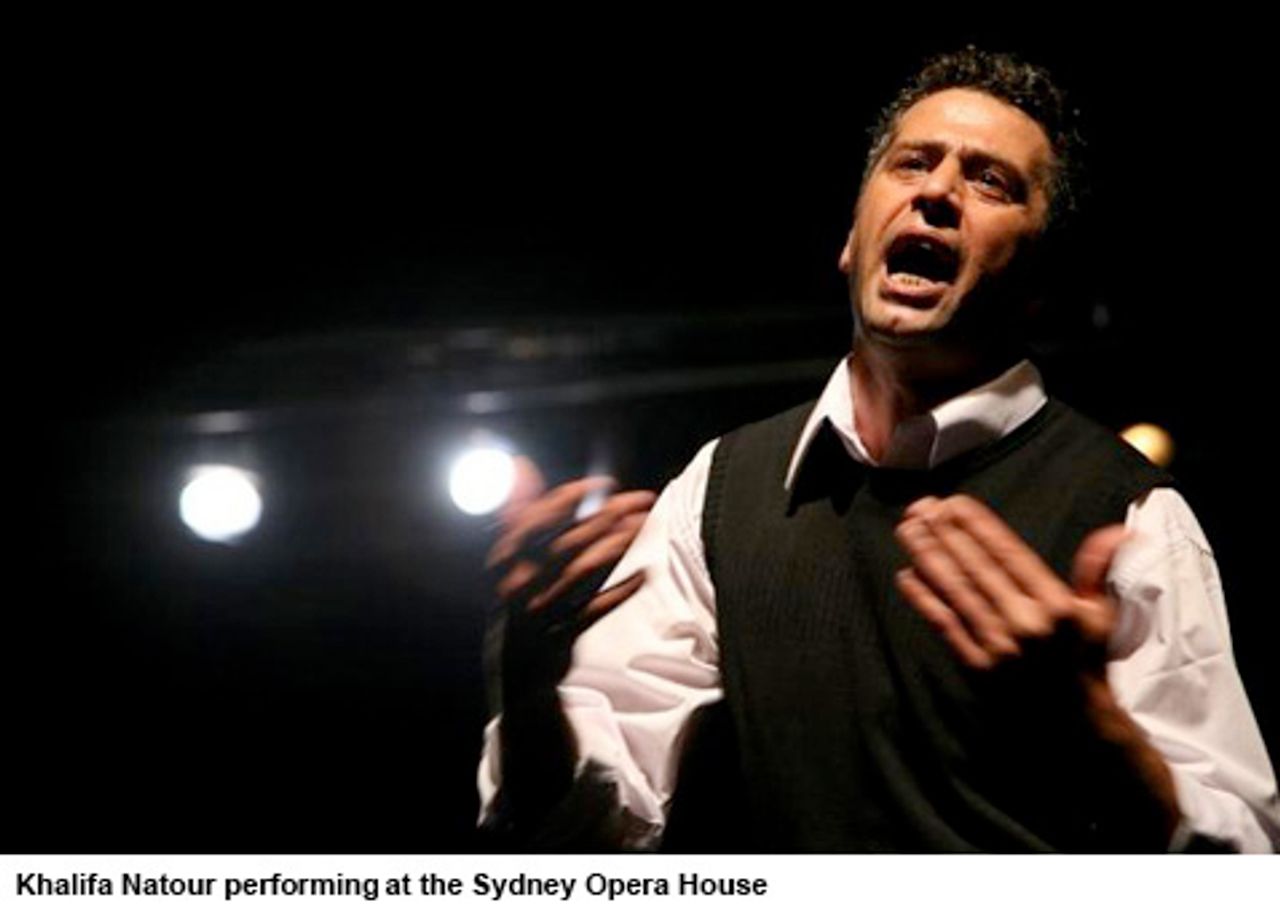In Spitting Distance is a rich, emotional and at times darkly ironic exploration of the situation facing a Palestinian actor/playwright in Ramallah, Paris and Tel Aviv in 2002. Written by Taher Najib and starring Khalifa Natour under the direction of Ofira Henig, the one-man show had a brief 11-day season in October at the Sydney Opera House. It was performed in Arabic with English surtitles.

Najib’s story is autobiographical and begins with the Israeli re-occupation of Ramallah in 2002, codenamed Operation Defensive Shield. The Israeli military demolished buildings and ruthlessly imposed curfews, electricity cuts and other measures during the violent occupation, forcing thousands of Palestinians to flee the city.
As the playwright/actor angrily declares: “They [Israeli military] will search every corner in Ramallah. They will get into the theatre and shit on the chairs. They will take over the local TV station and screen porn films—true blue colonialism. They won’t be different in any way from the French occupier in Algeria.”
The play’s title is a reference to its observations about young men in Ramallah—their constant spitting as an expression of their bitter anger and frustration over the occupation, the failure of the so-called Oslo Accords and countless other impositions on the Palestinian people.
Unable to stomach the situation any longer, the playwright/actor flees to Paris where he spends the next months in exile, falling in love with the city and one of its beautiful female residents. At the same time he is desperately homesick for his homeland, and six months later, following an appeal from a colleague to come back to Ramallah and resume his work in the theatre, he decides to return.
Scheduled to travel on September 10, 2002 he arouses deep suspicions from airline authorities: “You are a Palestinian with an Israeli passport, wanting to fly to Tel-Aviv with two different surnames on your passport and a ticket for September 10th. Monsieur, do you really think I am going to let you get on this flight?”
His flight, however, is changed to September 11—the first anniversary of the Al Qaeda terrorist attack on the World Trade Center. Arriving at the airport on that day, he is now regarded with even greater suspicion and subjected to intensive questioning by security authorities.
Eventually allowed to fly, he is greeted by Israeli police and intelligence officers on the airport tarmac as soon as he arrives in Tel Aviv. After more questioning he is permitted to leave, meets a friend and heads for a café in King George Street, Tel Aviv. He asks for a beer in Arabic and restaurant patrons, believing him to be a suicide bomber, rush out of the premises.
The play concludes with him sadly contemplating his fate back in Ramallah. “The homeland apparently is no more than a pillow, which could be placed anywhere.”
“Close the curtains,” he continues. “Stretch the night, stretch it. Don’t let it go. My homeland is flooded. My homeland is drowned. It hid the vision from me and left me naked and exposed to my fate. It is like the sun which blinded me three times. First time when I looked directly at it, the second time when I looked directly at it and the third time when I was trying to cover it with a plastic bag.
“I don’t want the morning to arrive. I feel freezing cold while all the others around me are dripping sweat and spit. I am freezing cold. Stretch the night. Stretch it from one end to the other.”
While the story is profoundly political, the script is not didactic but deeply poetic, with moments of absurd humour. One is provided with a real sense of how the so-called “war on terror” has impacted on Palestinians and the decades of oppression they have been forced to endure. Khalifa Natour’s one-hour monologue is powerful and painful. Such was the impact on one audience member the night I saw the show that she broke into a loud and long wail that echoed through the theatre.
In Spitting Distance is an intelligent and serious work and deservedly won Israel’s TheaterNetto festival prize in 2006. It vividly captures the plight of someone whose only crime is to be born a Palestinian and is the type of work that rarely makes it into mainstream theatre or film.
(See “‘Good theatre makes you ask questions’: an interview with Khalifa Natour and Ofira Henig”)
